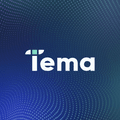Tema ETFs (“Tema”) launches the Tema Oncology ETF (CANC), the first actively managed ETF listed in the United States seeking to provide long-term growth by investing in oncology companies leading the fight against cancer. The portfolio will be managed by David K. Song, MD, PhD, CFA, who has led biotechnology and healthcare investment teams throughout his extensive 25-year career, including roles at Rockefeller Capital Management, Millennium and Balyasny. The portfolio will be balanced across key oncology areas and company profiles, ranging from diagnostics and care to therapeutics and clinical products, and with exposure to both established and emerging biopharma companies.
“We’re excited to bring the first oncology ETF to market that offers investors the opportunity to get risk managed exposure to arguably the biggest biotech megatrend.” said Maurits Pot, Chief Executive Officer and founder of Tema. “Oncology is a critical yet complex sector, where the number and nature of risks as well as the need for expertise cannot be underestimated. These include scientific, regulatory, financial, and clinical risks. Regulation plays a critical role but varies by jurisdiction and requires experience to interpret and position accordingly. The confluence of these complex risks we believe warrants an active approach to manage. We believe deep biomedical and investing background combined with Tema’s risk management process is critical to effectively manage an oncology ETF.”
Cancer is the world’s second deadliest killer [1] . Reports estimate that 1 in 2 people will be diagnosed with cancer in their lifetime [2] . The population of individuals over 60 years old is forecast by the UN to grow 2.5 times by 2050 reaching 2.5 billion people [3] , with that age segment representing 70% of cancer diagnoses [4] . This ageing population, together with developing adverse lifestyle factors, will mean that cancer will only become more prevalent in the future. As of now, the economic cost to society is forecasted to be $25.2 trillion from 2020 to 2050 [5] .
A revolution in biology and biotechnology is driving significant advances in diagnosing and treating cancer. The cost of genomic sequencing has fallen exponentially over the past 15 years [6] , dramatically increasing R&D productivity. This has contributed to an innovation boom with new technologies such as cell therapy, liquid biopsies, and precision oncology, leading the way for safer and more effective treatments and diagnoses. Oncology is leading the way amidst a sustained boom of new drugs, representing over 30% of approvals of new drug approvals in 2021, up from 25% in the 2010-2019 period, and well ahead of other drug classes [7] . Oncology spending is also accelerating, with an expected $1.5 trillion to be spent between 2023 and 2027 [8] .
“The progress and speed of innovation we’re witnessing in oncology is very exciting and from an investment perspective, oncology is more accessible than ever before.”, said David K. Song, CANC portfolio manager. “This innovation has led to a burst of new companies, with 70% of the oncology universe listing on public markets in the last decade alone [9] bringing the industry to a combined market capitalization of $2.5 Tn [10] . Oncology is one of the largest and fastest growing segments of broader healthcare globally. There is significant value in the life science sector, following the recent sell-off, as one-quarter of small biotech firms trade at market caps below the net cash on their balance sheet.”


 Back
Back



